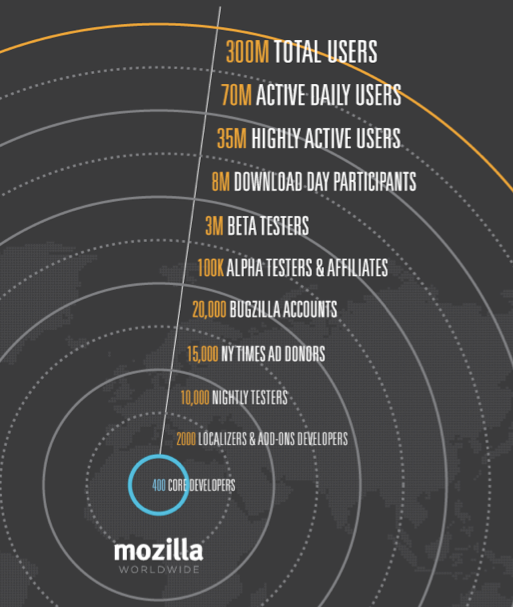What is FLOSS?
FLOSS is an abbreviation for Free/Libre/Open Source Software. The terms Free, Libre, and Open Source are all used to describe software that guarantees certain freedoms both to users and to programmers. Groups that promote the use of FLOSS software often use different terms to refer to it. For example, the Free Software Foundation and the GNU project often refer to "free" software, while other groups including Debian and the Open Source Initiative promote "Open Source" software. In English, the term "free" can mean either "no-cost" or "having liberty", so "libre software" is often used to emphasize that the software provides freedom rather than simply being free of cost.
The ideas encapsulated in the terms "free" and "open" are similar but not identical. While there are dozens of variations of these terms in use, all FLOSS software shares some of the same basic ideals of software freedom, including:
- Freedom to run the program
- Free access to complete source code
- Freedom to study the code
- Freedom to modify the code
- Freedom to redistribute the modified code
The specific freedoms provided by each software project can vary, but these ideas form the basis for most FLOSS licenses. From a user's perspective, FLOSS software is always free to use and to copy, both now and in the future. There are some unclear boundary lines and gray areas that must be kept in mind when copying or distributing FLOSS software, including trademarks and "proprietary" drivers in the Linux kernel. Each FLOSS software project includes detailed information on what rights are guaranteed by the software license. A wide variety of FLOSS is available for all common platforms, including Windows, Mac OS, and Linux.
Firefox
For many users, Firefox is their first introduction to FLOSS and the ideas it represents. FLOSS is a core aspect of the Mozilla project, which develops the Firefox web browser. As a result, everyone is free to use, copy, improve, and extend Firefox. Another core aspect of the Mozilla project is its participatory development strategy, which means anyone can get involved with making Firefox better. Millions of community members help make Firefox better every day.
Who are these people and how are they connected?

Growing the use of Firefox is a grassroots effort. With no massive advertising campaigns and mostly word-of-mouth and technology-based message passing, the user base of Firefox has reached 220 million people. One way to describe the growth is "viral" (but in a good way, not like "software viruses") — passing from developers, to bloggers, to users, to more users.
At the core, around 400 developers work on the source code that powers Firefox. More than 30% of Mozilla code is contributed by volunteers, with the rest being contributed by full-time contributors who are paid either by Mozilla or by other companies involved in Mozilla development. In case you were wondering, "Mozilla" was the original name of the dinosaur-like mascot created in 1994 for Netscape Communications Corporation. "Mozilla" is now the name of both the non-profit foundation and its fully owned corporation that brings us Firefox and maintains the code base that it's built on.
All participants in the Mozilla project, from volunteer coders to paid contributors, highly value the community and collaborative efforts that go into Firefox development. They want to both improve the browser itself and make the web better. Contributors to Mozilla include industry leaders in particular areas of expertise such as networking, CSS, HTML, graphics, and wide array of other technologies that power the web. Mozilla is a diverse set of people, and nearly anyone can make a big difference, whether by developing code, writing documentation, testing software, or just telling friends about Firefox!
Beyond "core" developers, many different groups of dedicated people help make the Mozilla project successful. In the Mozilla community, there are:
- More than 500 people who localize and help to deliver Firefox into over 60 languages.
- Hundreds of other developers of "add-ons", who create extensions to customize Firefox and experiment with innovation.
- 10,000 people who help to test "nightly" development releases and help to maintain quality and provide feedback during the development process.
- 15,000 people who opened up their wallets to contribute each to pay for a 0,000 two page ad in the New York Times to promote the release of Firefox 1.0. The idea for this campaign came from a community of marketing developers that help to promote Firefox in many different ways.
- 20,000 people are active in "bugzilla", the Mozilla Project bug and feature tracking system. All these are contributing to future Firefox improvements.
- 8 Million people recently participated in "Download Day" which set a world record for the most downloads of a software package on the first day of the Firefox 3 release.
These examples demonstrate how many different communities and people with different skills all coming together can build and maintain a viable project. We hope that Firefox serves as an ideal introduction to FLOSS and to the concept of community-powered software development.





